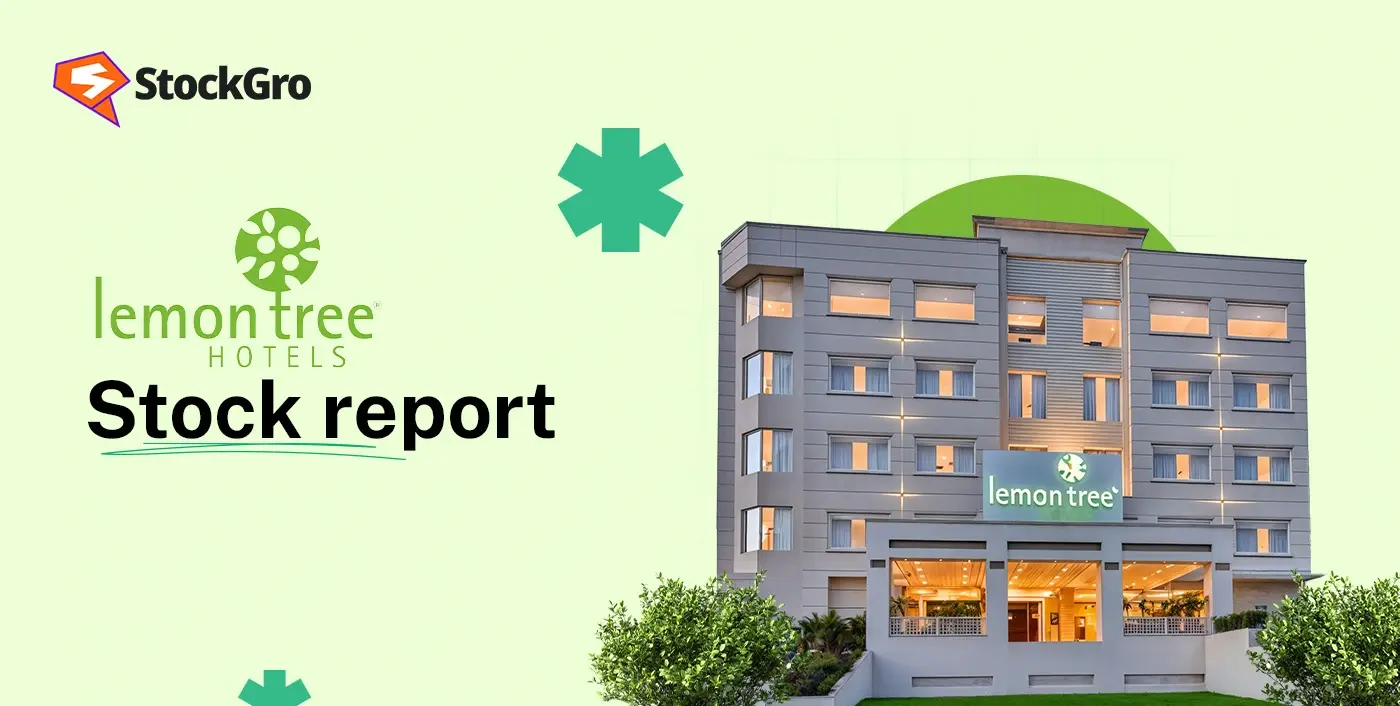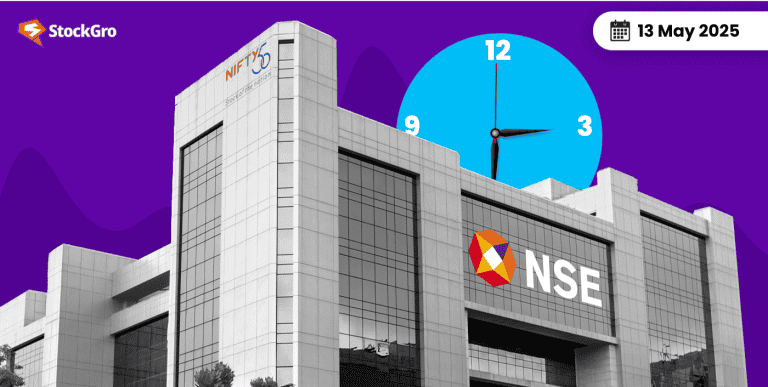
In a world where travel is not just a luxury but a lifestyle, the hospitality sector has become a quiet but powerful proxy for India’s growing middle class, increasing urban mobility, and rising aspirations.
Amidst legacy giants and global chains, Lemon Tree Hotels stands out – not as a luxury player, but as a disruptor in the mid-market hotel segment, a space often overlooked but structurally promising. With a compelling business model and focused expansion, Lemon Tree is carving out a unique space in the Indian hospitality sector.
Let’s dive deep into what makes this company worth watching and possibly investing in.
Stock overview
| Ticker | LEMONTREE |
| Industry/Sector | Hospitality (Hotel, Resort & Restaurants) |
| Market Cap (₹ Cr.) | 10,914 |
| Free Float (% of Market Cap) | 62.18% |
| 52 W High/Low | 162.40 / 112.29 |
| P/E | 61.97 (Vs Industry P/E of 63.12) |
| EPS (TTM) | 2.26 |
About Lemon Tree Hotels
Founded in 2002, Lemon Tree Hotels Limited (LTHL) is one of India’s largest hotel chains in the mid-priced segment. The company operates across multiple formats – from upscale to economy – serving both business and leisure travellers. As of FY24, it operates over 90 hotels with more than 9,000 rooms spread across 50+ cities.
The brand positions itself as offering premium amenities at affordable prices, targeting value-conscious consumers who seek comfort and consistency over luxury. Its diversified brand architecture ensures it caters to different price points without diluting its core brand identity.
Key business segments
Lemon Tree operates through a multi-brand architecture:
- Aurika Hotels & Resorts: Upscale luxury segment
- Lemon Tree Premier: Upper mid-scale hotels catering to business and premium leisure travelers
- Lemon Tree Hotels: Core mid-market brand, largest in the portfolio
- Red Fox Hotels: Economy segment with basic services, ideal for budget travelers
- Keys Hotels (acquired): A strategic acquisition to expand reach and scale
Additionally, LTHL operates under a hybrid ownership model, which includes:
- Owned/Leased Hotels: Higher margin, capital-intensive
- Managed Hotels: Asset-light, scalable, and less capital-intensive

Primary growth factors for Lemon Tree Hotels
Lemon Tree Hotels key growth drivers:
- Mid-Market Focus: Positioned to benefit from rising domestic tourism and India’s growing middle class.
- Asset-Light Expansion: Increasing share of managed hotels enables scalable, low-capex growth.
- Urban Presence: Strategic locations in metros and Tier 2 cities drive business and leisure demand.
- Operating Leverage: Improving occupancy directly boosts margins due to fixed cost structure.
- Cost Efficiency: Tight control over expenses and tech-led efficiencies support profitability.
Detailed competition analysis for Lemon Tree Hotels
Key financial metrics – FY 24;
| Company | Revenue(₹ Cr.) | EBITDA Margin (%) | PAT Margin (%) | Average Room Rate (Rs) | Occupancy Rate (%) | Revenue / Available Room (Rs) | P/E TTM |
| Lemon Tree Hotels | 1071.12 | 48.85% | 16.90% | 6763 | 74.20% | 5018 | 61.97 |
| Indian Hotels Company | 6768.75 | 31.87% | 17.75% | 20440 | 78.00% | 15996 | 63.28 |
| EIH Ltd | 2511.27 | 36.91% | 25.64% | – | 79.00% | – | 32.05 |
| Chalet Hotels | 1417.25 | 41.25% | 19.63% | 12944 | 70.00% | 9090 | 177.59 |
| Mahindra Holidays | 2704.60 | 19.00% | 4.31% | – | 85.00% | – | 50.74 |
Key insights on Lemon Tree Hotels
- Revenue CAGR of 62% over the last 3 years, driven by strategic expansion and improved RevPAR, showcasing robust top-line growth.
- EBITDA margins exceeding 45%, positioning Lemon Tree among the most efficient players in the hospitality industry.
- Profit CAGR of 47% over the past 3 years, reflecting strong operational leverage and earnings momentum.
- Ongoing debt reduction supported by improving cash flows, enhancing balance sheet strength and financial resilience.
- Recognized as an institutional-grade platform, making it a compelling long-term play in India’s growing hospitality sector.
- Occupancy rates nearing pre-COVID levels, underscoring a solid post-pandemic recovery and strong demand tailwinds.
Recent financial performance of Lemon Tree Hotels for Q3 FY25
| Metric | Q3 FY24 | Q2 FY25 | Q3 FY25 | QoQ Growth (%) | YoY Growth (%) |
| Revenue (₹ Cr.) | 290.18 | 284.37 | 355.18 | 24.90% | 22.40% |
| EBITDA (₹ Cr.) | 141.23 | 130.74 | 184.20 | 40.89% | 30.43% |
| EBITDA Margin (%) | 48.67% | 45.98% | 51.86% | 588 bps | 319 bps |
| PAT (₹. Cr.) | 43.45 | 34.88 | 79.76 | 128.67% | 83.57% |
| PAT Margin (%) | 14.97% | 12.27% | 22.46% | 1019 bps | 749 bps |
| Adjusted EPS (₹) | 0.45 | 0.37 | 0.79 | 113.51% | 75.56% |
Lemon Tree Hotels financial update (Q3 FY25)
Financial performance
- EBITDA rose 30% YoY to ₹184.2 crore, with a YoY margin expansion of 319 bps, driven by strong operational efficiency and improved RevPAR.
- Cash profit stood at ₹115 crore, up 49% YoY, while 9M FY25 cash profit totaled ₹240 crore, reflecting consistent performance across quarters.
Business highlights
- Continued focus on asset-light growth, with 13 new management/franchise contracts signed (766 rooms added to pipeline) and 1 new hotel operationalized (38 rooms added).
- As of 31st December 2024, the group’s portfolio includes 112 operational hotels with 10,317 rooms, and a strong pipeline of 88 hotels with 6,068 rooms, underscoring a robust growth trajectory.
- The company’s asset-light model continues to drive expansion with minimal capital outlay, supporting return ratios and scalability.
Outlook
- Aims for 15%-20% annual revenue growth, driven by focus on EBITDA per room improvement.
- Renovation-related investments to continue through FY26–FY27; normalize to ~1.5%-1.6% of revenue thereafter.
- EBITDA margins expected to reach 60% post-renovation.
- Debt-to-EBITDA to fall below 1.7x by FY26, indicating stronger financial health.
- Rising GDP and premiumization expected to significantly expand branded hotel demand over the next 6–7 years.
Company valuation insights – Lemon Tree Hotels
Lemon Tree trades at a TTM P/E of 61.97, in line with the industry average of 63.12, but has underperformed with a 1Y return of -13.33% vs Nifty 50’s +8.66%.
Despite near-term margin pressures due to ongoing renovation expenses, the medium-term outlook remains strong, supported by robust RevPAR growth, premiumisation in the mid-market segment, and steady expansion of its asset-light managed and franchised portfolio.
Q3 FY25 marked the best-ever quarterly performance, and management remains confident of sustaining growth through portfolio upgrades and targeted expansion. With 16,000+ rooms already operational, the company is on track to meet its FY27 target of 20,000 rooms.
At 15x EV/EBITDA on FY27E, we set a 12M target price of ₹170 (25% upside), with a 3M target of ₹150 (10% upside), reflecting strong long-term growth visibility.
Major risk factors affecting Lemon Tree Hotels
- High Fixed Costs: A downturn in travel or lower occupancy can sharply impact margins.
- Debt Load: Though reducing, debt remains a concern, especially in a high-interest-rate environment.
- Competition: Aggressive entry by OYO, Zostel, and international chains in the budget and mid-market space.
- Macroeconomic Sensitivity: The business is vulnerable to downturns in discretionary spending, fuel prices, and currency swings.
Project Execution Risk: Delays in hotel openings or cost overruns could impact expansion goals.
Technical analysis of Lemon Tree Hotels share

Lemon Tree has recently broken out of a descending channel pattern and is now consolidating above its 50-day EMA, suggesting early signs of strength. However, it still trades below the 100- and 200-day EMAs, indicating that sustained momentum is yet to be confirmed. The 200-day EMA lies close to the key resistance zone, making a breakout even more significant.
MACD remains positive at 0.55 but is yet to cross above the signal line, and a bullish crossover could reinforce upward momentum. RSI at 42.74 reflects neutral sentiment, while Relative RSI is mildly negative over 21-day and 55-day periods (-0.07), suggesting slight underperformance relative to broader trends. ADX at 12.11 indicates a lack of strong trend, with the stock currently in a range-bound phase.
A breakout above the ₹150 resistance level could trigger a move towards ₹170, while ₹128 acts as a strong support zone.
- RSI: 42.74 (Neutral)
- ADX: 12.11 (Range Bound)
- MACD: 0.55 (Positive)
- Resistance: ₹150
- Support: ₹128
Lemon Tree Hotels stock recommendation
Current Stance: Buy with a target price of ₹170 over a 12-month horizon and ₹150 over a 3-month horizon. Lemon Tree’s strategic shift toward premiumisation, asset-light growth, and strong demand recovery makes it a compelling play on India’s evolving hospitality landscape.
Why buy now?
Strong Q3 performance with 30% YoY EBITDA growth and margin expansion driven by healthy RevPAR and occupancy recovery.
Premiumisation strategy and renovations to support medium-term margin expansion, targeting 60% EBITDA margin post-FY27.
Scalable growth with 16,000+ operational rooms and 6,000+ in the pipeline, on track for 20,000 rooms by FY27.
Portfolio fit
Lemon Tree offers unique exposure to India’s underpenetrated branded hotel segment, with long-term tailwinds from rising domestic tourism, urbanization, and premiumisation. Its asset-light strategy, margin expansion visibility, and institutional-grade execution make it well-suited for investors seeking compounders in consumption and services growth themes.If you found this helpful and want regular stock trade calls, check out my community on StockGro here: https://app.stockgro.club/ui/social/tradeViews/groupFeed/07a7b961-b8ca-42ce-baf3-a9eec781b6ebLemon Tree Hotels: Budget 2025-26 opportunities
- Tourism Infrastructure Boost: Increased spend on airports and tourist circuits to lift hotel demand.
- Middle-Class Consumption Push: Policies to boost discretionary spend may drive branded hotel stays.
- Tax Incentives for Travel: Possible tax breaks on domestic travel can support occupancy growth.
- Hospitality Skill Development: Budget support for skilling to improve staffing and service quality.
- Green Hotel Incentives: ESG-focused schemes may benefit Lemon Tree’s sustainable hotel model.
Final thoughts
Imagine an investor looking to benefit from the rise of India’s domestic consumption – but already owns banks, FMCG, and IT stocks. Where’s the next growth lever?
That’s where Lemon Tree fits in. It represents India’s lifestyle shift – more people traveling for business, medical needs, weddings, and staycations. With a strong brand, smart expansion, and improving financials, Lemon Tree offers a different flavor of growth – one rooted in hospitality, aspiration, and experience.
It’s not just about rooms – it’s about capturing a growing habit of travel, which will only deepen with rising incomes and better connectivity. Lemon Tree is not a one-night stay – it’s a long-haul growth story.

